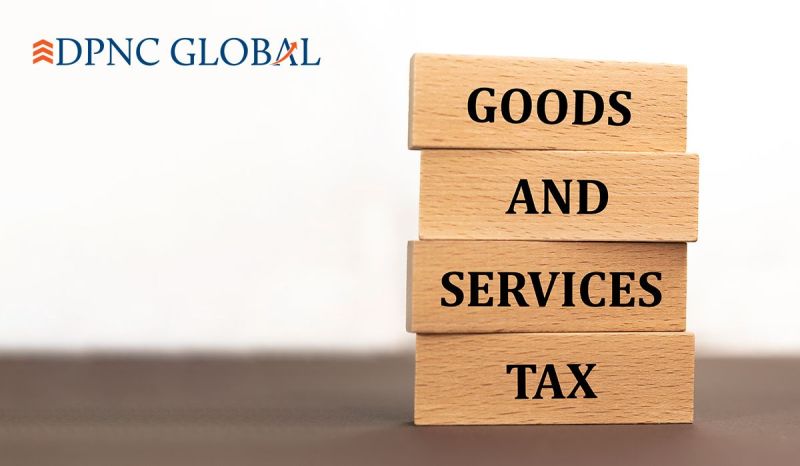During investigation proceedings under the GST regime, taxable persons often voluntarily deposit an amount (using Form GST-DRC-03) while indicating that the payment is made “under protest” as the investigation is ongoing. These deposits frequently remain blocked until the investigation concludes. The question then arises: can the taxpayer claim a refund for this voluntarily deposited amount? Despite the lack of legal obligation to make such deposits, authorities often view these payments as voluntary, interpreting them as gestures of goodwill.
Recently, the Madras High Court addressed this issue in the case of M/s Aditya Energy Holdings [W.P. No. 9654 of 2021]. The petitioner in this case sought a refund of amounts voluntarily paid during an ongoing investigation by filing a writ petition under Article 226 of the Constitution of India. The court, while emphasizing that it could not interfere with the investigative process, reaffirmed the petitioner’s constitutional right to dignity, including during investigations. It stressed that fundamental rights, such as those guaranteed by Article 21 of the Constitution, cannot be suspended, even during investigations.
In this case, the department argued that the petitioner had wrongly availed of Input Tax Credit (ITC), justifying their investigation and opposing any refund, as they claimed the amount belonged to the government. After considering the facts and arguments, the Madras High Court ruled that the amount paid by the petitioner was a deposit under Section 73 and/or 74 of the CGST Act, 2017. The court highlighted that this payment was made under protest during the issuance of summons and other investigative actions, not after the completion of the investigation or adjudication process. The court clarified that the petitioner’s payment, although processed through Challan GST-DRC-03, did not amount to self-ascertainment as defined under Section 73 or 74 of the CGST Act, 2017. However, the court refrained from granting a refund and instead directed the revenue authorities to return seized documents to the petitioner, issue a show-cause notice within six months, and complete adjudication proceedings within twelve months.
In contrast, in the case of M/s. Shri Nandhi Dhall Mills India Private Limited [W.A.No.1441 of 2021], the Madras High Court permitted a refund of the amount paid during an investigation. The court emphasized that payments made under pressure during an investigation, even when accompanied by an admission of tax liability, do not constitute self-assessment or self-ascertainment under Section 74(5) of the CGST Act, 2017. The court underscored that self-ascertainment involves an unconditional determination, and the existence of ongoing inquiries and the possibility of issuing a show-cause notice suggested that the payment was not a final self-assessment.
The decision in Shri Nandhi Dhall Mills contrasts sharply with the Madras High Court’s ruling in M/s. Aditya Energy Holdings, where the court, instead of ordering a refund, prescribed a timeline for the completion of adjudication by the investigating authorities. This divergence in judicial interpretations highlights the complexities and varied approaches in dealing with refunds and timelines in taxation matters.
Additionally, another recent ruling by the Karnataka High Court in the case of M/s Bundl Technologies Private Limited [W.P. No. 4467/2021] ordered a refund of amounts deposited “under protest” during an investigation. The court noted a significant delay of ten months in issuing a show-cause notice after conducting investigations, emphasizing the need to conclude proceedings within a reasonable timeframe.
The key issue here is that the GST regime lacks explicit provisions for paying taxes “under protest”, unlike earlier indirect tax laws, such as Rule 233B of the Central Excise Rules, 1944. This rule outlined procedures for taxpayers to pay duty under protest and for revenue officers to address such protests. The absence of similar provisions in the GST regime raises questions about whether the principles of the earlier laws can be extended to GST.
While GST laws do not explicitly recognize the payment of taxes under protest, Section 174 of the CGST Act, 2017, which preserves provisions of previous laws like the Central Excise Act, 1944, might suggest continuity of such practices. However, under GST, every tax payment is based on self-assessment or self-ascertainment, which contrasts with the concept of protesting one’s own decisions.
Nevertheless, various High Courts have acknowledged the practice of paying taxes under protest in the GST era, arguing that such payments should not be considered voluntary or self-assessed, despite following procedures like filing GST-DRC-03.
When refund claims are denied, taxpayers who paid amounts under protest may face financial strain until final decisions are made by adjudicating or appellate authorities. This raises the question of whether precedents from earlier decisions should be considered binding in the GST era.
Ultimately, while there are arguments both for and against applying previous precedents to GST, the absence of explicit provisions for paying taxes “under protest” under the GST regime necessitates careful consideration of legal principles and judicial interpretations in each specific case. The diverging judicial interpretations underscore the ongoing legal complexities in the GST regime and the need for clearer legislative guidelines.
Disclaimer :
The information contained herein is a summary form and is prepared based on the provisions of GST Law and related Rules, Circulars and Notifications therein. While the information is believed to be accurate to the best of our knowledge, we do not make any representations or warranties, express or implied, as to the accuracy or completeness of this information. Readers should conduct and rely upon their own examination and analysis and are advised to seek their own professional advice. We accept no responsibility for any errors it may contain, whether caused by negligence or otherwise or for any loss, howsoever caused or sustained, by the person who relies upon it.
About Our GST Services
DPNC Global LLP is a full service consulting firm providing multi-disciplinary services to clients ranging from MNCs, Indian Corporates from across industries to Family Offices and UHNIs, both in and outside India.
Our GST & Indirect Tax Services team focuses on resolving practical issues faced by taxpayers and businesses while ensuring due compliance with complex legislation. Our services extend from timely and systematic support for GST compliances to advisory on a wide range of contemporary indirect tax issues and GST litigation support.
Our team of GST Consultants possesses in depth experience across diverse sectors and offer tailored solutions for tax optimization while ensuring due compliance with this complex and dynamic legal transaction regime law. To know more about our services, visit https://dpncglobal.com/gst-indirect-tax/


